The 10th Beijing International Film Festival (BJIFF) is coming to an end. At the event, the star-studded workshop and masterclasses are undoubtedly the focus of the film practitioners and movie fans. For years, the BJIFF has not only brought a carnival air to movie fans, but also been a great destination for film professionals at home and abroad to get together. Here, we share gratifying results and explore difficulties and countermeasures. More importantly, we follow them on this road to “rediscover” the film from their discourses.
Motion Picture Association Film Workshop: Talent Training and Creative Creation Become Key to Industrialized Films
On August 24, the first event session, Motion Picture Association Film Workshop themed “Film Talent Cultivation System under Industrialization in China", invited senior Chinese and international filmmakers to have exchanges with young Chinese filmmakers on the site or via video.
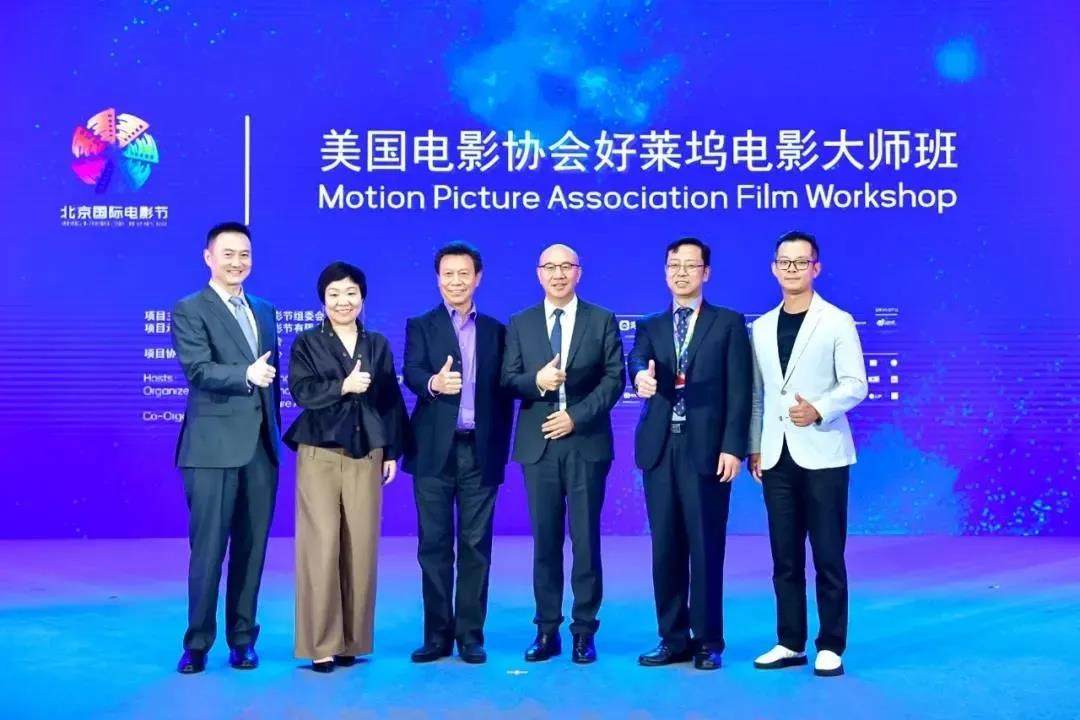
William Feng, Head of Greater China & Vice President of Asia Pacific, Motion Picture Association, delivered a speech at the workshop. He mentioned that, instead of upgrading or improving just a certain section or part, film industrialization needs the film industry chain. In order to accelerate industrialization, we should keep learning good practice of developed countries and mature markets. Under the guidance of China's competent film administrations, the Motion Picture Association of America (MPA) and its member companies hosted Sino-foreign co-production forums, screening events, and filmmaker exchange programs through which excellent Chinese filmmakers were invited to study and have exchanges in the USA every year. All these efforts have laid a solid foundation for China's film industrialization and related talent training.
The workshop was moderated by Li Zhan, founding partner of Fanink, and the guests included Gillian Zhao, President of Warner Bros. China; Ye Ning, Founder and Chairman of Qingsong Pictures; Ellen Eliasoph, producer of the Journey to the West: Conquering the Demons and Shadow; Andre Morgan, producer of Million Dollar Baby and The Warlords, shared their ideas about the film talent cultivation system under industrialization in China.
As Ye Ning indicated, over the past one or two years, the international film market has been transformed fundamentally. It is a rare opportunity for China's film industry as the country is restructuring the industry and going through industrialization. Once the opportunity is seized, China will become a film power from a big film country, aligning its film industry with its cultural power and national strength. According to him, in terms of film industrialization, on one hand, it is essential to systematically train talents who have a good command of art and market rules, and on the other hand, it is also important to define proper subject and creation of a good story in the development stage. If these two cornerstones are well laid, the quality of Chinese films will be enhanced significantly, so will the number of works.

Ang Lee Masterclass: Three-decade Pursuit of Film Dream
On August 25, the Ang Lee Masterclass of the 10th BJIFF was held, during which Lee shared with movie fans his journey as a filmmaker.
Talking about the differences between the Oriental and Western creative environments, Ang Lee said: “In my experience, Oriental films are about aesthetic conception and blurry depiction of existence, deliberately or inadvertently. Taking Oriental paintings as an example, figures are very small while the heaven, earth, mountains and water take up much more space. There is plenty of blank space. In short, they focus on aesthetic conception and structure. Western films, in contrast, are more about conquering and aggression. Maybe it’s because of their nomadic origin. In their world view, individual decisions can make difference in the world, which may be really engaging. But how can Oriental films blend in or change Western films? I think a new technology might be a good chance for us as audience expects freshness. There is a big chance for us if we are able to make the most of our habits and strengths, such as aesthetic conception, blurry structure and holistic respect for the heaven and earth, and blend them and Western culture together.”
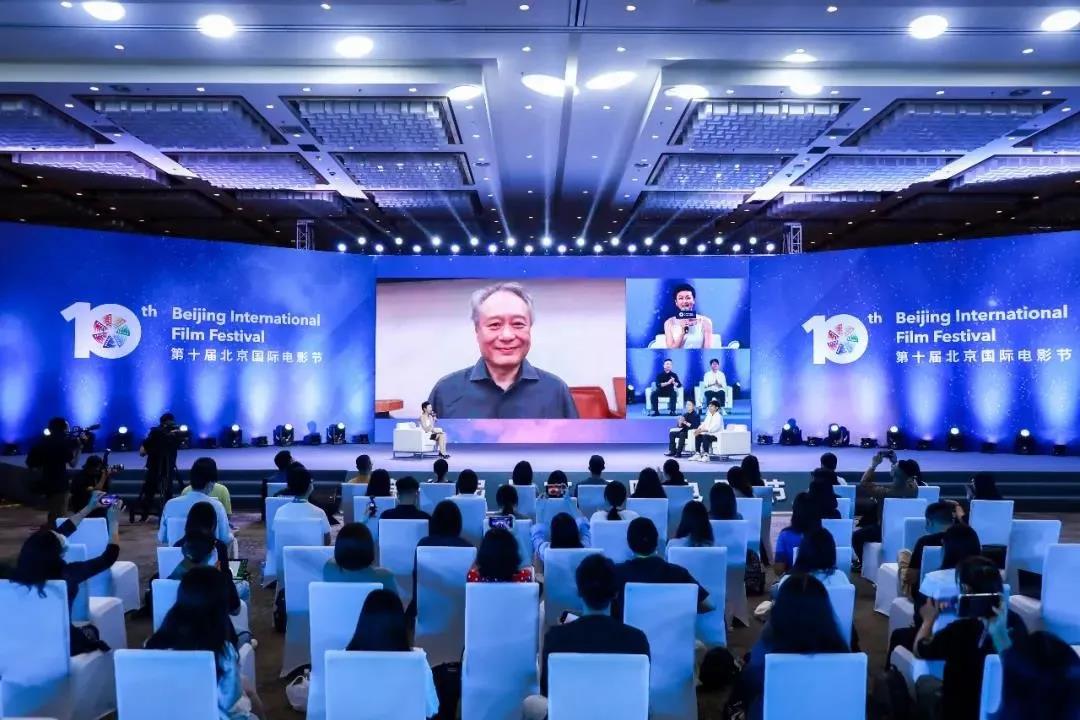
Nowadays, Lee has started transformation out of family ethics dramas. The characters in his works were not only perplexed about their own identity, but started to associate such confusion with the complex social reality and the broad time. His awakening literati consciousness enabled him to expand his observation from middle-class families to broader cultural and social groups. Regarding this point, Lee added, “As far as I’m concerned, adventure is safest comfort zone. I would feel agitated and think everything would go wrong if I stop adventuring. It’s a strange mentality but I think filmmakers should be adventurous.”
Starting from Life of Pi, Lee's continuous attempts in cinematography have also become a hot-button issue among industry insiders and the audience in recent years. As for questioning regarding the technology applied in the production of the Billy Lynn’s Long Halftime Walk, he replied, “There is no point in comparing apples and oranges. So are movies in 2D and 3D. Filmmakers are excelling at 2D productions. It’s the same with movies shot on film. The digital and 3D technologies just set out in filmmaking. It’s like a baby that can’t stand on its own steadily. So, there is no point in comparing them. I’m not saying 2D is inadequate or in need of upgrading. It’s just that they are totally different things.”
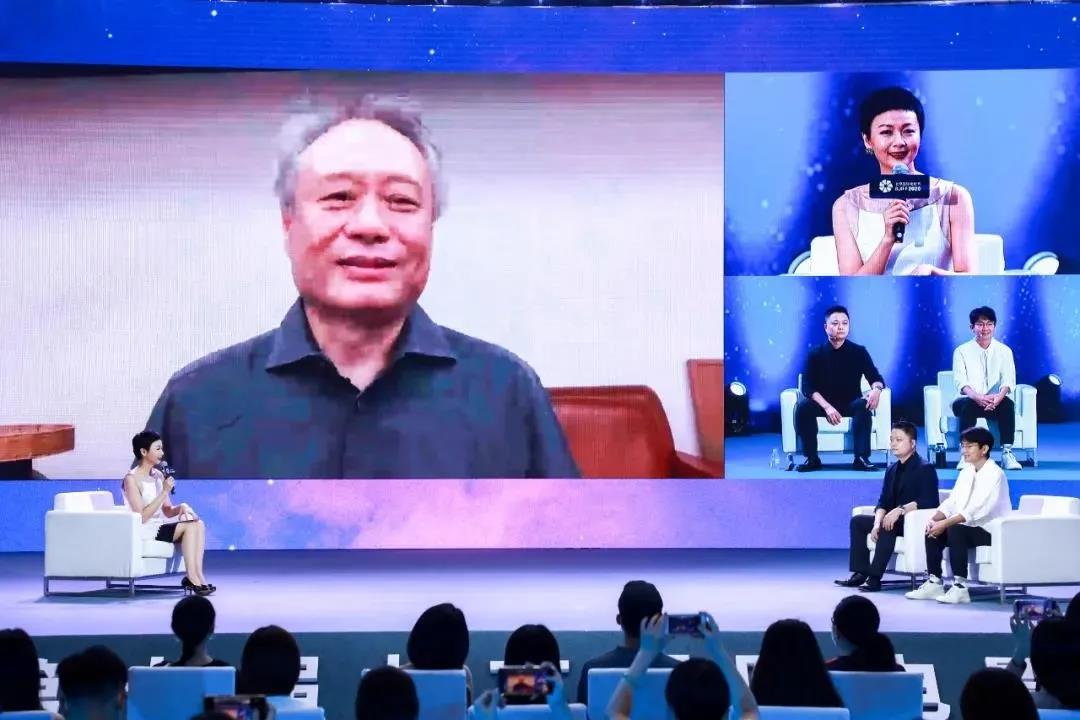
As for the impact of streaming services on cinema circuits, Lee said, “You have to accept the fact that the audience would rather watch movies at home than go to cinemas. Only by producing films that can’t be watched at home with great efforts, and creating new cinematography and stories can you attract the audience back to cinemas, which are of ritual and collective sense. I have confidence in cinemas.”
Jessica Hausner Masterclass: Exploring the Border between Fantasy and Reality from Women's Perspective
On the evening of August 26, director Jessica Hausner, who was shortlisted for the In Competition Section at the 72nd Festival de Cannes for Little Joe, showed up as a guest among the workshop and masterclasses. During the one-hour session, Hausner reviewed her experiences of shooting short films and feature films as well as winning Cannes nominations. Elaborating on her consistent themes and aesthetic explorations, she was very generous about sharing her filmmaking techniques.
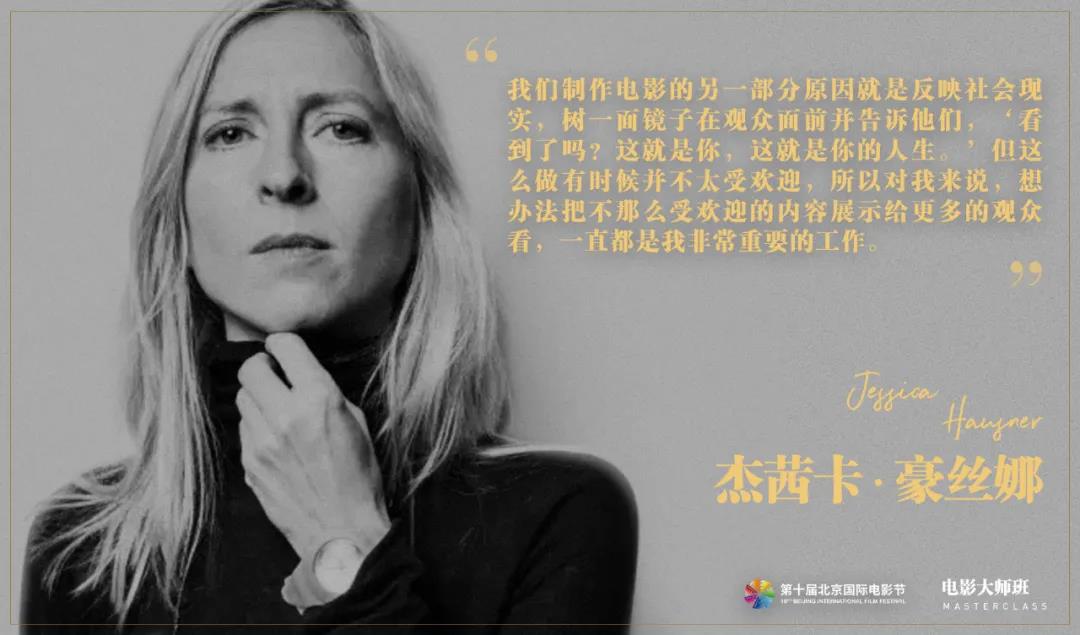
Stanley Kwan: Telling Moving Stories with Sincere Emotions
On the evening of August 28, the renowned director Stanley Kwan appeared as a gust among the BJIFF workshop and masterclasses, ending the event on a high note. Kwan has always been hailed as the director who “understands women's hearts best” for in his works, women are persistent and tenacious for love. The mirrors and windows in his films reflect beautiful and heart-breaking love stories. Many outstanding actresses such as gorgeous Anita Mui and Maggie Cheung are freeze-framed in the eternally beautiful scenes in his films.
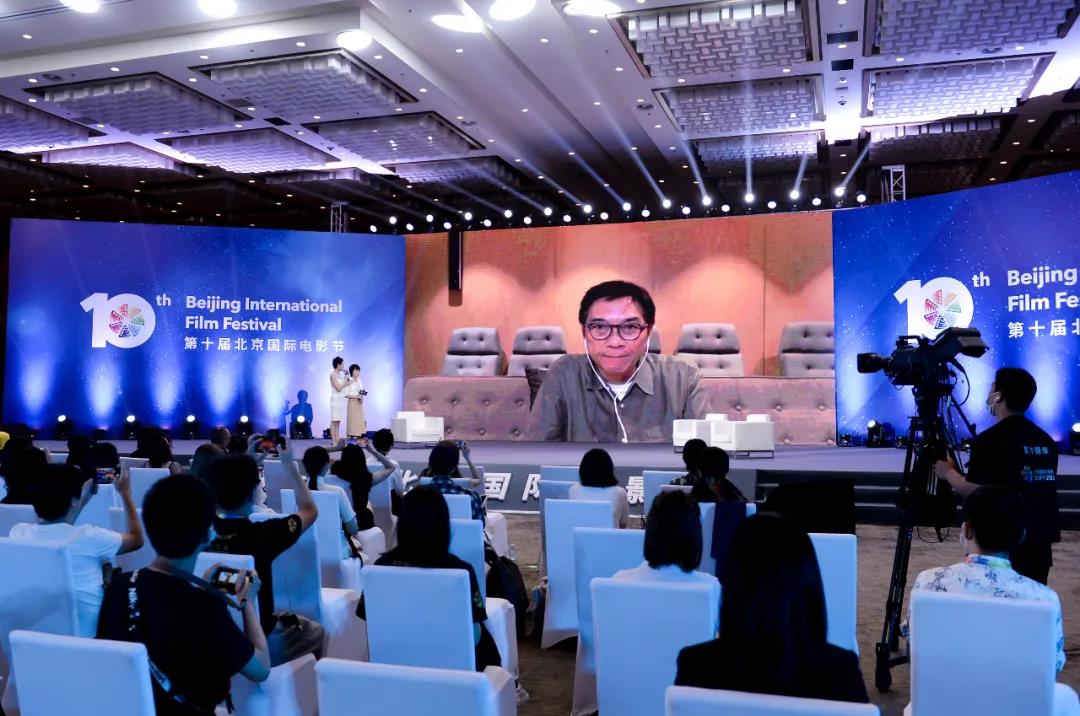
When talking about how to shoot a film that is women-centric and get close to the female characters in the film, Kwan said: “I’m not such a director who shoots a female role just with female feelings. I think there is a kind of thinking that is very interesting. Facing up to my own choice, I can even leap out of the male point of view sometimes and treat the female roles in my plays objectively. However, at other times, I even get into the world of these female roles with somewhat self-pity. Such a contradiction is very interesting.”
In the Q&A session, some viewers asked Kwan that what new breakthroughs could be made in the films about sexual relations and emotional themes in the new context of the film. He answered: “Only if we properly shape the characters in the story, tell the story well, and set reasonable scenes, the movie can move people – that’s the best. Never mind about the new movie environment or the new context. In my view, sincerity is important, and we should focus on something we believe in, regardless of how the environment changes.”
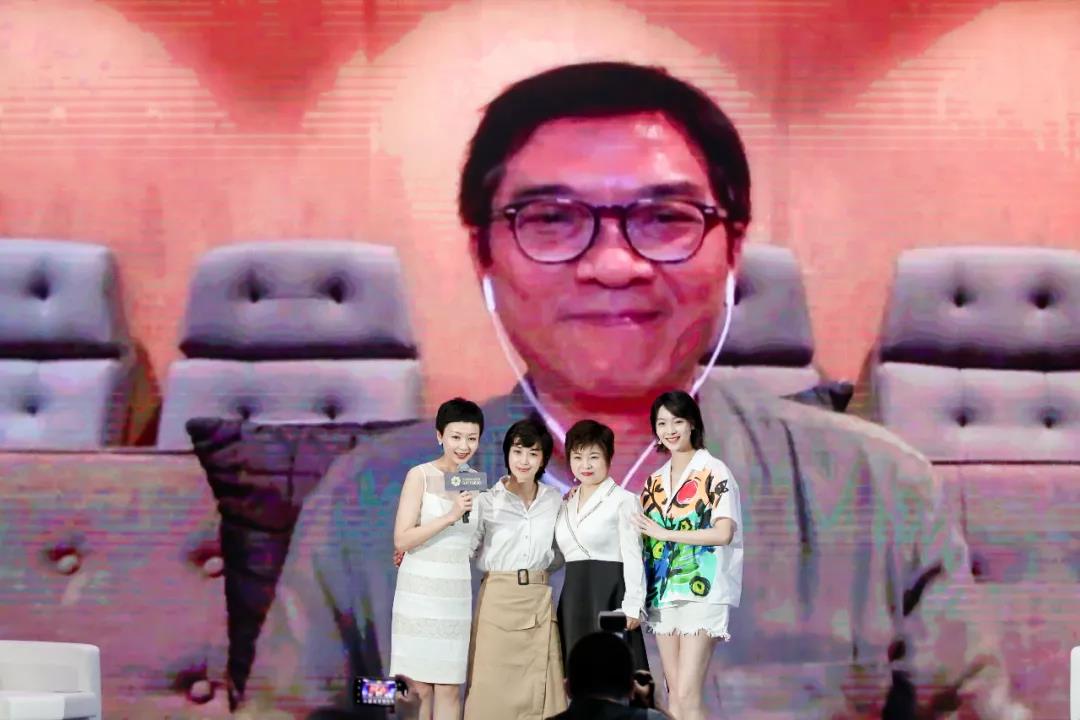
As the 10th BJIFF is coming to a close, the successful workshop and masterclasses also wrapped up. Listening to the views of the veterans in the film industry and the creative experiences they shared can always benefit us who love movies. 2020 is undoubtedly a special year for all film festivals. At the same time, we are well aware of the significance of organizing a film festival to the entire film industry. Therefore, despite the difficulties, we still maintained close communication with filmmakers, and sent out invitations for the workshop and masterclasses to established filmmakers at home and abroad at the earliest possible time. In the words of Ang Lee, the filmmakers need to unite and support each other even at such difficult times. The support from filmmakers and movie fans warmth has fortified our belief in overcoming technical difficulties to organize the Workshop & Masterclass. At the milestone when the BJIFF is going into its tenth year, we take film as a medium to narrow the distance between creators and fans and keep the original aspirations of the BJIFF.
